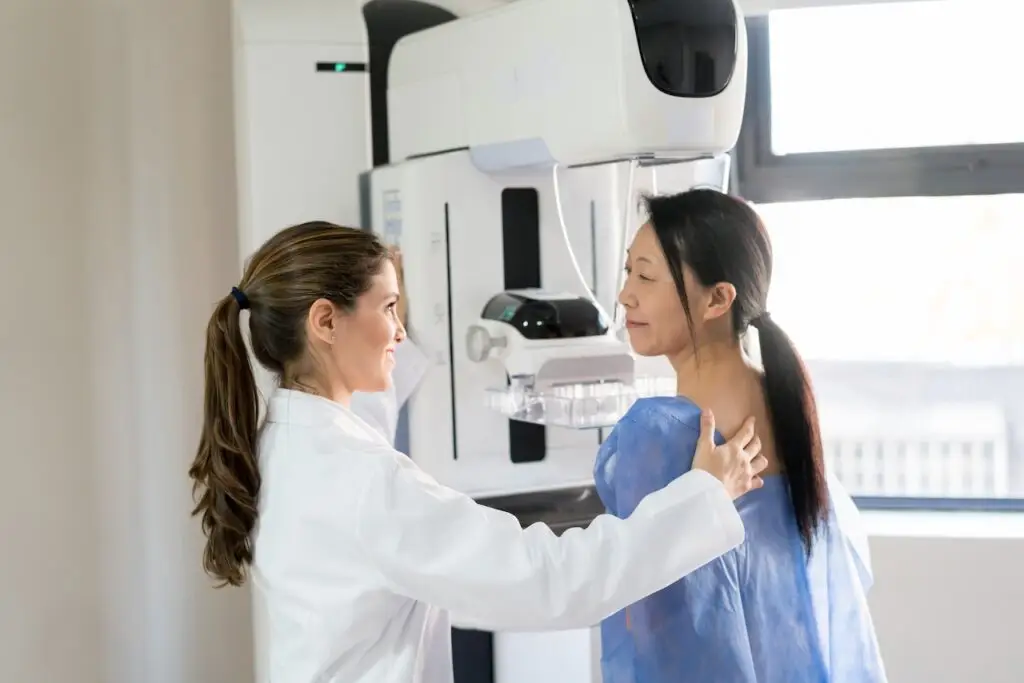Receiving a breast cancer diagnosis is life-changing, but you’re not alone in facing it. A dedicated team of specialists comes together, each bringing their expertise to support you every step of the way. Let’s explore the key members of this team and how they contribute to your treatment and well-being.
Medical oncologist
Think of your medical oncologist as the “quarterback” of your breast cancer care team. This specialist oversees your entire treatment plan and coordinates with other doctors to ensure you’re getting the most effective care. They focus on treating cancer with medications like chemotherapy, hormone therapy, and targeted therapies. Your medical oncologist will assess whether you need additional treatments beyond surgery or radiation and will adjust your treatment plan as needed to optimize your outcomes. They’ll also provide ongoing care and follow-up long after your initial treatment is complete.
Surgical oncologist
A surgical oncologist is often one of the first specialists you’ll meet after your diagnosis. These surgeons are experts in removing breast tumors and performing procedures such as lumpectomies or mastectomies. In addition to their surgical skills, they have extensive knowledge of cancer biology, which allows them to determine the best surgical approach tailored to your specific case. Whether you’re having a biopsy or a more extensive surgery, your surgical oncologist plays a critical role in your cancer care.
Radiation oncologist
Radiation therapy is a common component of breast cancer treatment, especially if you’ve had surgery. Your radiation oncologist specializes in using high-energy rays to destroy cancer cells. At your initial meeting, they’ll outline a personalized treatment plan, discuss the mapping process, and review potential side effects and expected outcomes. Although you’ll have daily sessions with radiation technicians, your radiation oncologist will monitor your progress through regular check-ins to adjust your plan as necessary and ensure you’re on track.
Patient navigator
Navigating a cancer diagnosis can be overwhelming, but your patient navigator is there to guide you. Whether they’re a nurse, social worker, or hospital liaison, their role is to help you manage the logistics of your care, from scheduling appointments to addressing insurance concerns. They’re also there to connect you with resources and remove barriers that could delay your treatment. Your patient navigator is your go-to person for support throughout your cancer treatment and into survivorship.
Your care team might also include additional specialists such as psychologists, physical therapists, and lymphedema experts, alongside breast care nurses, plastic surgeons, and pathologists. These professionals bring valuable support to your overall well-being—addressing both the physical and emotional aspects of your treatment.
Remember, it’s always okay to ask questions about their roles and how they’ll be involved in your care. Understanding who’s on your team can help you feel more informed, confident, and empowered as you move through each stage of your treatment.
__________________________________________________
Need help preparing for your appointments with your oncology care team? Connect with an oncology nurse practitioner through the Outcomes4Me app using the “Ask Outcomes4Me” feature—completely free of charge. Our experienced nurses can guide you on what questions to ask, what to expect, and how to make the most of your time with each specialist. Download the app and get personalized support to feel confident and prepared at every step of your cancer care.
Personalized support for real care decisions
Understand your diagnosis, explore clinical trials, and track symptoms--all in one place.
Get started
Compare treatments, prepare for appointments, and track side effects—all in the app
Built for your diagnosis, Outcomes4Me gives you the tools to make confident, informed decisions—right when you need them.
Continue in app






